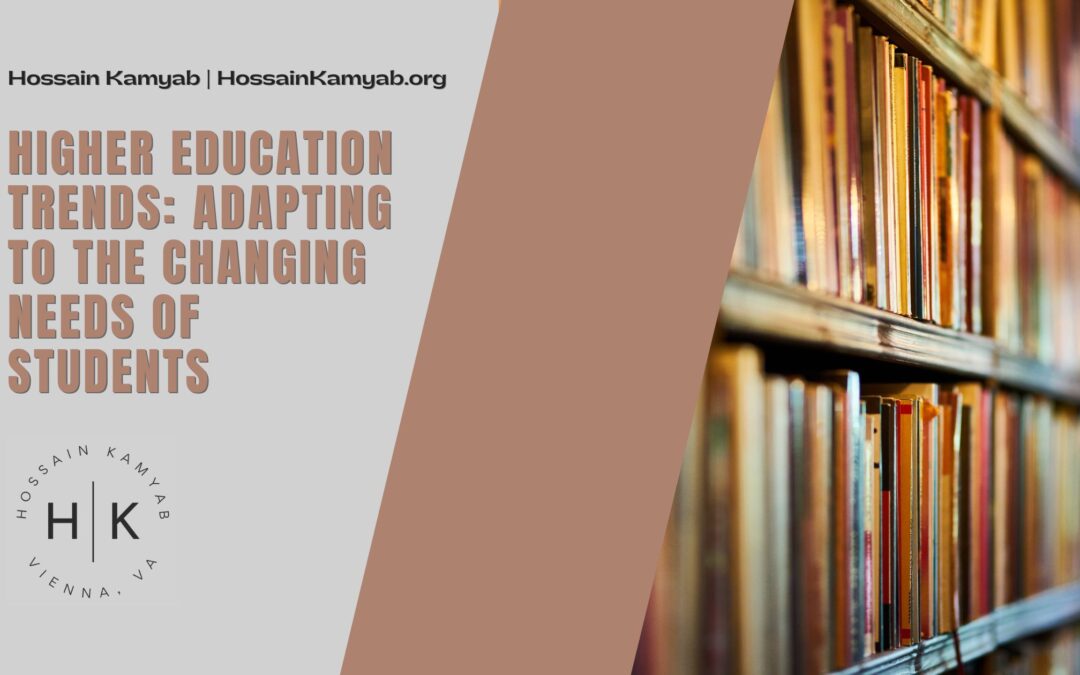Higher education is undergoing a transformative phase, propelled by the rapidly changing landscape of technology, the evolving job market, and the diverse needs of students. As we move forward, institutions must adapt to these shifts to better serve their students and prepare them for the challenges of tomorrow.
Flexible Learning Models
Traditional classroom settings are no longer the sole avenue for higher education. Online learning and hybrid models have given students unprecedented flexibility. With the ability to access lectures and coursework from anywhere, anytime, students can tailor their learning experience to their schedules and preferences. This adaptability is particularly crucial for non-traditional students, such as working adults or those with family responsibilities, allowing them to pursue education without compromising their existing commitments.
Emphasis on Skill Development
Employers increasingly prioritize practical skills over academic qualifications in the fast-paced, technology-driven world. Higher education institutions are recognizing this shift and incorporating more hands-on, skill-focused learning experiences into their curricula. From project-based assessments to internships and co-op programs, students are gaining real-world experience that goes beyond textbook knowledge. This emphasis on skill development ensures graduates are academically prepared and equipped with the practical abilities demanded by today’s job market.
Personalized Learning Paths
The one-size-fits-all approach to education is gradually giving way to personalized learning paths. Technology, such as artificial intelligence and machine learning, enables institutions to analyze individual student strengths, weaknesses, and learning styles. This data-driven approach allows educators to tailor curricula to address the needs of each student, fostering a more engaging and practical learning experience. Personalized learning enhances student comprehension and promotes a sense of ownership over one’s education, increasing motivation and retention.
Incorporating Emerging Technologies
The integration of emerging technologies, such as virtual reality (VR), augmented reality (AR), and artificial intelligence (AI), is reshaping the higher education landscape. These tools create immersive learning experiences, bring abstract concepts to life, and provide students with practical skills applicable to their future careers. For example, medical students can now simulate surgeries using VR, and engineering students can engage in virtual design projects. As technology advances, its integration into higher education will be pivotal in preparing students for the digital age.
Focus on Mental Health and Well-being
Recognizing the increasing stress and mental health challenges students face, higher education institutions are placing a greater emphasis on well-being. This includes implementing mental health support services, counseling, and wellness programs. The understanding that a healthy mind is essential for effective learning has led to a more holistic approach to education. By creating a supportive and nurturing environment, institutions address immediate student concerns and foster a culture of well-being that can extend beyond the academic setting.
The changing needs of students in the 21st century require higher education institutions to evolve continually. From flexible learning models to personalized approaches and the integration of cutting-edge technologies, the landscape of higher education is becoming more dynamic and responsive. As we embrace these trends, we move closer to a future where education is not just a means to a degree but a journey that equips students with the skills, knowledge, and resilience needed for success in an ever-changing world. By adapting to these trends, higher education can ensure it remains a cornerstone of personal and societal advancement.

